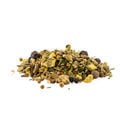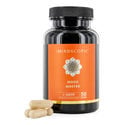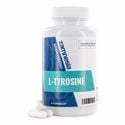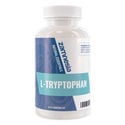-
Seed Shop
-
Feminized
Cannabis seeds -
Autoflowering
Cannabis Seeds -
Regular
Cannabis Seeds -
F1 Hybrid
Cannabis Seeds -
CBD
Cannabis Seeds -
Zamnesia
Cannabis Seeds
-
Top 10’s
- Top 10 Feminized Seeds
- Top 10 Autoflowering Seeds
- Top 10 Regular Seeds
- Top 10 USA Cannabis Strains
- Top 10 Zamnesia Seeds
-
Favourites
- Beginner Strains
- Below 1% THC
- Classic Cannabis Strains
- Cup Winners
- F1 Hybrids
- Fast-Flowering Strains
- High CBD Strains
- High THC Strains
- Mix Packs
- Zamnesia Exclusive Collabs
-
-
Headshop
-
Vaporshop
- Spare Parts & Accessories
- AirVape X
- AirVape XS GO (2021)
- Arizer Air MAX
- Arizer Extreme Q
- Arizer Solo 2
- Arizer V-Tower
- Arizer XQ2
- Boundless CFC 2.0 Vaporizer
- Boundless CFX
- Boundless TERA (V3)
- CRAFTY+
- DaVinci IQ2
- DaVinci IQC
- DaVinci MIQRO
- Dr. Dabber Boost EVO
- Dr. Dabber Stella
- DynaVap Omni 2021
- DynaVap VapCap "M" PLUS 2023
- DynaVap VapCap 'M' 2021
- DynaVap VonG (i) Titanium
- Dynavap The "B" Series
- Eagle Bill
- Firefly 2+
- Flowermate Aura
-
Healthshop
-
Smartshop
-
Shroomshop
-
Growshop
-
Seed Shop
All CategoriesSeed Shop
-
Vaporshop
All CategoriesVaporshop
- Top 10 Vaporizers
- Spare Parts & Accessories
- AirVape X
- AirVape XS GO (2021)
- Arizer Air MAX
- Arizer Extreme Q
- Arizer Solo 2
- Arizer V-Tower
- Arizer XQ2
- Boundless CFC 2.0 Vaporizer
- Boundless CFX
- Boundless TERA (V3)
- CRAFTY+
- DaVinci IQ2
- DaVinci IQC
- DaVinci MIQRO
- Dr. Dabber Boost EVO
- Dr. Dabber Stella
- DynaVap Omni 2021
- DynaVap VapCap "M" PLUS 2023
- DynaVap VapCap 'M' 2021
- DynaVap VonG (i) Titanium
- Dynavap The "B" Series
- Eagle Bill
- Firefly 2+
- Flowermate Aura
- Flowermate Cap Pro
- Flowermate Slick
- Flowermate V5.0S Pro
- G Pen Connect
- G Pen Elite II
- G Pen Micro+
- G Pen Pro
- G Pen Roam
- Hydrology9 Vaporizer
- Hyer Big-E Rig
- MIGHTY
- MIGHTY+
- PAX Mini
- PAX Plus
- PLENTY
- Pax 3 Vaporizer
- Puffco Peak PRO Smart Rig
- Puffco Peak Smart Rig
- Puffco Plus
- Storm Vaporizer
- The Proxy (Puffco)
- VOLCANO CLASSIC
- VOLCANO HYBRID
- Vape-Lifter
-
Smartshop
All CategoriesSmartshop
- Top 10 Smartshop
- Zamnesia Gift Cards
- After Party
- Aphrodisiacs
- Aromatherapy
- Blue Lotus
- CBD Vape Juice
- Capsule Machines
- Crystals, Gemstones & Minerals
- Dream Herbs
- Drug Tests
- Extracts
- Happy Caps
- Herbal Tea
- Herbs & Seeds
- Incense
- Kanna
- Kratom
- LSA Seeds
- Mescaline Cacti
- Microdosing
- Nootropics
- Relaxing
- Salvia divinorum
- Smart Seeds
- Stimulants
- Supplements
- Tinctures
- Vape Herbs
-
TRIBE
All CategoriesTRIBE
- My Membership
- Spend Gift Points
- Exclusive products
- Earn Extra Gift Points
-
TRIBE
- Early Access
- Refer a Friend
- Information
-
TRIBE
-
Language
 United States
United States
Wednesday, 23 April and Tuesday, 29 April 2025*
- Zamnesia >
- Smartshop >
- After Party >
- Tryptophan >
- L-Tryptophan vs 5-HTP: Benefits & Effects for UK Users
Tryptophan Vs 5-HTP: Understanding The Differences

L-tryptophan and 5-HTP are both supplements commonly used to promote a good night’s sleep and to raise the mood. As such, many people mistake the two for being the same thing. Sure, they act in a similar way, but there are some important differences to be aware of. Check out the similarities and differences between L-tryptophan and 5-HTP below.
WHAT IS L-TRYPTOPHAN?
L-tryptophan plays an important role in numerous physiological processes. The body uses the molecule to make vital hormones such as melatonin and serotonin, which are involved in sleep and mood regulation. The body also requires a steady flow of L-tryptophan to manufacture niacin, a B vitamin involved in metabolism and nervous system function.
WHERE DOES L-TRYPTOPHAN COME FROM?
As an essential amino acid, the body cannot make L-tryptophan. Instead, we must consume external sources of the molecule to fulfil vital functions. L-tryptophan occurs in large quantities in meat, eggs, fish, cheese, spirulina, sunflower seeds, and chickpeas.
L-TRYPTOPHAN EFFECTS

Because L-tryptophan serves as a building block for several key vitamins and hormones, it might produce beneficial effects in some users. These include:
- Promotes a good night’s sleep
- Elevates the mood
- Supports emotional well-being
HOW DOES L-TRYPTOPHAN WORK?
After entering the body through food or supplementation, L-tryptophan can take three different pathways. As an amino acid, the molecule might be used in protein synthesis to build larger polymers used to construct different tissues throughout the body.
Alternatively, L-tryptophan may be converted into a molecule called kynurenine, and then into niacin (vitamin B3). Niacin plays an important metabolic role and helps convert carbs into sugars. The vitamin also supports proper central nervous system operation.
Finally, the body uses L-tryptophan as a precursor to 5-HTP. L-tryptophan itself can not reach the brain, but 5-HTP sails through with ease. Once in the brain, 5-HTP serves as a building block to serotonin.
Serotonin is a neurotransmitter that impacts mood, social behaviour, sleep, appetite and digestion, memory, and sexual desire.
Chemical reactions in the brain also convert serotonin into melatonin. This hormone helps to regulate the sleep-wake cycle—or circadian rhythm. The level of light detected by the eyes dictates how much melatonin the pineal gland produces. When darkness falls, melatonin production increases and the brain receives the signal that it’s time to sleep.
WHY AND WHEN WOULD YOU USE L-TRYPTOPHAN?

Conditions related to mood are often associated with low levels of serotonin, meaning increased L-tryptophan consumption could help to raise levels of the neurotransmitter and thus raise the spirits.
The molecule appears to work better than placebo in elevating the mood, and may work better in the mornings to counter low mood caused by seasonal lack of sunlight.
Because tryptophan helps to fuel melatonin production, it may promote a restful night when taken close to bedtime. Around 1g of the molecule appears to assist with improving sleep readiness.
L-TRYPTOPHAN SUPPLEMENTS
Although L-tryptophan can be readily sourced from common foods, supplementing the molecule can provide us with higher quantities. Those looking to raise their mood or experience a good night’s rest might want to try a supplement to see how it works for them.
WHAT IS 5-HTP?
5-HTP, or L-5-hydroxytryptophan, occurs in the body as a natural chemical. It plays a fundamental role in both serotonin and melatonin synthesis and has garnered attention for its potential to increase serotonin levels.
Taking serotonin won't increase brain levels of the molecule—the hormone simply can’t cross over from the bloodstream into the brain. However, 5-HTP can easily access the brain from the outside. Once inside, the molecule converts into serotonin. This mechanism of action has generated a great deal of interest in the molecule in terms of influencing mood.
WHERE DOES 5-HTP COME FROM?
5-HTP does not derive from common foods. The body needs a constant supply of the essential amino acid L-tryptophan to synthesise adequate levels of 5-HTP. However, 5-HTP occurs in nature in the seeds of an uncommon plant: Griffonia simplicifolia, a woody climbing shrub native to West and Central Africa.
5-HTP EFFECTS

5-HTP represents the “next step” of L-tryptophan synthesis into serotonin and melatonin. However, researchers have investigated the effects of 5-HTP more thoroughly than L-tryptophan. The molecule may help to produce the following beneficial effects:
- Helps when feeling nervous
- Raises the mood
- Helps achieve a good night’s sleep
HOW DOES 5-HTP WORK?
5-HTP swiftly moves to the brain where it converts directly into serotonin. The enzyme amino acid decarboxylase catalyses this reaction. From here, serotonin helps to mediate important functions such as mood and appetite. The brain also converts the neurotransmitter into melatonin to drive the sleep-wake cycle.
WHY AND WHEN WOULD YOU USE 5-HTP?

Because serotonin cannot pass from the blood into the brain—and L-tryptophan doesn’t do so very effectively—5-HTP provides an effective way to elevate serotonin within the brain. Taking 5-HTP may therefore provide an effective way to boost the mood.
The molecule appears to be more effective than a placebo in cheering people up, justifying its use for whenever you feel dispirited.
5-HTP’s role in melatonin synthesis also makes taking 5-HTP a viable option when you’re looking for a restful night’s sleep. Taking 5-HTP before bed may help to minimise sleep disturbances and help you doze off faster. 5-HTP might also help to put the mind at ease whenever you feel tense or excitable.
5-HTP SUPPLEMENTS
5-HTP supplements are widely available and generally well tolerated. As capsules, they are easy to include in an existing regimen and can be taken anywhere throughout the day. Because 5-HTP does not occur in food, supplementation is the only way to directly increase levels of the molecule.
SO, WHO “WINS”?

Although they lead to similar outcomes and help to manufacture the same chemicals and hormones, L-tryptophan and 5-HTP each offers its own advantages. L-tryptophan helps to synthesise vital proteins and vitamins, and can easily be obtained through common foods. On the other hand, 5-HTP bypasses the conversion of L-tryptophan and delivers 5-HTP directly to the brain.
If you’re looking for a supplement to boost your mood every once in a while (say after a night of partying) or the odd day when you’re feeling a bit under the weather, 5-HTP can be a great option. If, however, you’re looking for a regular supplement to help achieve restful sleep and boost emotional well-being, you might opt for L-tryptophan. It all comes down to your needs and preferences.
In other words; neither molecule is “better” than the other—they both offer compelling attributes!

- (n.d.). APA PsycNet - https://psycnet.apa.org
- (n.d.). Error - Cookies Turned Off - https://onlinelibrary.wiley.com
- (1985/03/01). L-5-Hydroxytryptophan in the treatment of anxiety disorders - ScienceDirect - https://www.sciencedirect.com
- Schneider-Helmert, Dietrich, Spinweber, & Cheryl L. (1986, May). Evaluation of l -tryptophan for treatment of insomnia: A review | SpringerLink - https://link.springer.com
- France
- Germany
- International
- Italy
- Netherlands
- Spain
- United Kingdom
- United States
After party supplements
-
£5.97 £5.07
-
£42.93
-
£19.74 £16.78
-
£27.05 £20.29
-
£20.60+13 Extra Gift Points
-
£8.16 £6.12
-
£2.57 £1.93+2 Extra Gift Points
You might also like
-

 4 min
26 December 2018
Top 7 Nootropics To Boost Mental Performance
Nootropics are substances that enhance mental performance. Although the movie Limitless greatly increased interest in nootropics among the mainstream, the concept isn’t exactly new. From caffeine an ...
4 min
26 December 2018
Top 7 Nootropics To Boost Mental Performance
Nootropics are substances that enhance mental performance. Although the movie Limitless greatly increased interest in nootropics among the mainstream, the concept isn’t exactly new. From caffeine an ...
-

 1 min
6 November 2017
Best Incense For Relaxation And Sleep
Here at Zamnesia, we bring you all sorts of herbs. Herbal incense is a safe and cost-effective way to unwind. Discover our best varieties of incense for easing the mind, body and soul. ...
1 min
6 November 2017
Best Incense For Relaxation And Sleep
Here at Zamnesia, we bring you all sorts of herbs. Herbal incense is a safe and cost-effective way to unwind. Discover our best varieties of incense for easing the mind, body and soul. ...
Categories
-
Seed Shop
- Feminized Cannabis Seeds
- Autoflowering Cannabis Seeds
- Regular Cannabis Seeds
- F1 Hybrids
- CBD Seeds
- Zamnesia Seeds
- Top 10 Autoflowering Seeds
- Top 10 Regular Seeds
- Top 10 USA Cannabis Strains
- Top 10 Zamnesia Seeds
- Top 10 Feminized Seeds
- Beginner Strains
- Below 1% THC
- Classic Cannabis Strains
- Cup Winners
- F1 Hybrids
- Fast-Flowering Strains
- High CBD Strains
- High THC Strains
- Mix Packs
- Zamnesia Exclusive Collabs
- Amnesia Seeds
- Blueberry Seeds
- Cheese Seeds
- Diesel Seeds
- Gorilla Seeds
- Haze Seeds
- Kush Seeds
- Purple Seeds
- Skunk Seeds
- White Widow Seeds
- Zamnesia Seeds
- ACE Seeds
- Advanced Seeds
- Amsterdam Genetics
- Anesia Seeds
- Auto Seeds
- Barney's Farm
- Big Buddha Seeds
- Bomb Seeds
- BSB Genetics
- BSF Seeds
- Buddha Seeds
- Bulldog Seeds
- Cali Connection
- Cannarado Genetics
- CannaBioGen
- CBD Crew
- CBD Seeds
- Compound Genetics
- The Dank Seeds
- Dark Horse Genetics
- Delicious Seeds
- Devil Harvest Original
- Dinafem
- DNA Genetics
- Doctor's Choice
- Dr. Underground
- Dutch Passion
- Elite Seeds
- Eva Seeds
- Exotic Seed
- Expert Seeds
- FastBuds
- Female Seeds
- Fenocan
- Flash Auto Seeds
- French Touch Seeds
- Garden of Green
- GeneSeeds
- Genehtik Seeds
- G13 Labs
- Grass-O-Matic
- Greenhouse Seeds
- Grow Your Own (DNA)
- Growers Choice
- Homegrown Fantaseeds
- House of the Great Gardener
- Humboldt Seed Company
- Humboldt Seed Organization
- Kalashnikov Seeds
- Kannabia
- The Kush Brothers
- Light Buds
- Little Chief Collabs
- Medical Seeds
- Ministry of Cannabis
- Mr. Nice
- Nirvana Seeds
- Original Sensible
- Paradise Seeds
- Perfect Tree
- Pheno Finder
- Philosopher Seeds
- Positronics Seeds
- Purple City Genetics
- Pyramid Seeds
- Rare Dankness
- Reggae Seeds
- Reserva Privada
- Resin Seeds
- Ripper Seeds
- Royal Queen Seeds
- Sagarmatha Seeds
- Samsara Seeds
- Seedstockers
- Sensation Seeds
- Sensi Seeds
- Serious Seeds
- Silent Seeds
- Soma Seeds
- Spliff Seeds
- Strain Hunters
- Sumo Seeds
- Super Sativa Seed Club
- Super Strains
- Sweet Seeds
- T.H. Seeds
- Top Tao Seeds
- Vision Seeds
- VIP Seeds
- White Label
- World Of Seeds
- Zativo Seeds
- Seed Banks
-
Headshop
-
Vaporshop
-
Healthshop
-
Smartshop
- Top 10 Smartshop
- Zamnesia Gift Cards
- After Party
- Aphrodisiacs
- Aromatherapy
- Blue Lotus
- CBD Vape Juice
- Capsule Machines
- Crystals, Gemstones & Minerals
- Dream Herbs
- Drug Tests
- Extracts
- Happy Caps
- Herbal Tea
- Herbs & Seeds
- Incense
- Kanna
- Kratom
- LSA Seeds
- Mescaline Cacti
- Microdosing
- Nootropics
- Relaxing
- Salvia divinorum
- Smart Seeds
- Stimulants
- Supplements
- Tinctures
- Vape Herbs
-
Shroomshop
-
Growshop
- Top 10 Growshop
- Top 10 Plant Seeds
- All Seeds
- Cacti
- Chilli & Pepper Seeds
- Companion Plants
- Edible Plant Seeds
- Exotic Seeds
- Flower Seeds
- Fruit Seeds
- Herb Seeds
- Interior Plant Seeds
- Microgreens
- Psychoactive Plant Seeds
- Sprouting
- Vegetable Seeds
- Wellness Plant Seeds
- After Harvest
- Climate Control
- Fertilizer
- Grow Tents
- Harvest, Dry & Cure
- LED Grow Lights
- Plant Seeds
- Propagation
-
Merchandise
-
Sale section
Account
Information
Our Offers
Our website won't work without these cookies activated. Therefore functional cookies can't be disabled.
Table of contents































